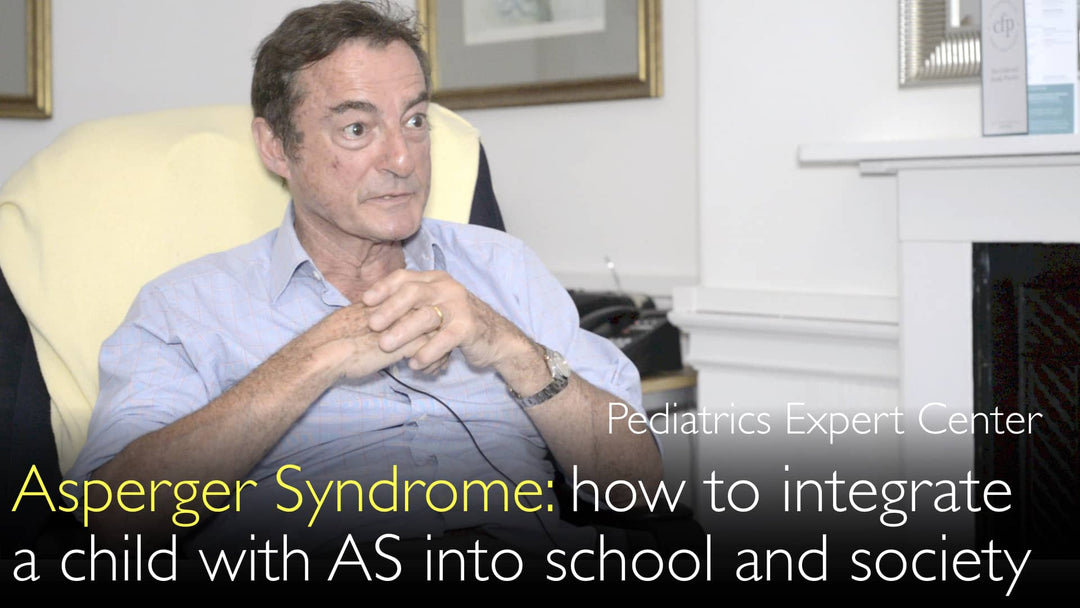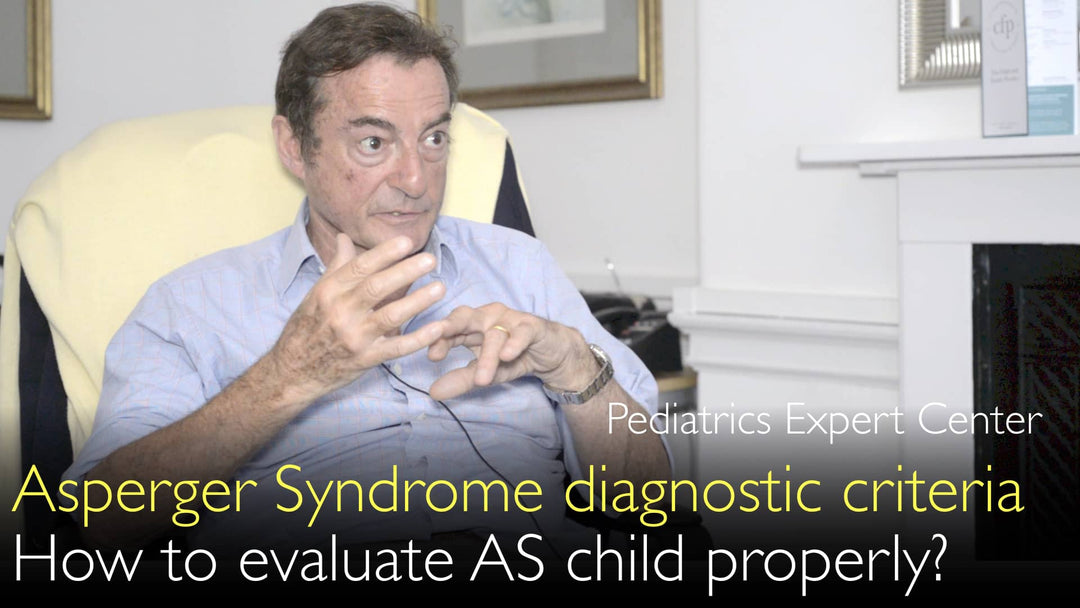Leading expert in holistic ADHD treatment, Dr. Sanford Newmark, MD, explains how dietary interventions can be as effective as medication. He details two key approaches: a general healthy diet and a targeted elimination diet. Clinical trials show a 60% success rate with elimination diets for ADHD symptom improvement. Dr. Sanford Newmark, MD, discusses why this evidence is often overlooked by physicians despite its strong efficacy.
Effective Dietary Treatments for ADHD: Elimination Diets and Nutritional Strategies
Jump To Section
- Two Dietary Approaches for ADHD
- Elimination Diet Clinical Efficacy
- Barriers to Dietary Treatment Adoption
- The Nutrition Education Gap in Medicine
- Implementing ADHD Diet Changes
- Full Transcript
Two Dietary Approaches for ADHD
Dr. Sanford Newmark, MD, outlines two primary dietary interventions for attention deficit hyperactivity disorder. The first approach involves adopting a generally healthier diet. This foundational strategy focuses on removing common dietary triggers.
Key changes include eliminating artificial colors, flavors, and preservatives. Reducing sugar intake and switching to whole grain foods are also critical. Dr. Sanford Newmark, MD, explains that highly processed carbohydrates cause blood sugar to spike and then drop precipitously. This blood sugar instability can lead to irritability and stress in children, exacerbating ADHD symptoms.
Dr. Anton Titov, MD, discusses the importance of starting with these basic nutritional improvements. Many parents report significant behavioral improvements from these fundamental dietary changes alone.
Elimination Diet Clinical Efficacy
The second dietary approach involves targeted elimination diets for ADHD treatment. Dr. Sanford Newmark, MD, emphasizes that some children are sensitive to specific foods, even healthy ones. Common triggers include dairy, wheat, corn, soy, and eggs.
Remarkably, removing these foods can lead to dramatic improvement in ADHD symptoms. Dr. Newmark clarifies this is not necessarily a classic food allergy. Children can experience significant symptom improvement without showing traditional allergic reactions like eczema.
Dr. Anton Titov, MD, highlights the importance of this distinction for parents considering dietary interventions.
Barriers to Dietary Treatment Adoption
Despite strong clinical evidence, dietary treatments for ADHD face significant adoption barriers. Dr. Sanford Newmark, MD, points to a 2011 Lancet study showing 60% of children experienced significant ADHD improvement on elimination diets. This improvement level matches what is typically seen with medication.
Similar results have been replicated since the 1980s. Yet this evidence remains largely ignored in mainstream ADHD treatment. Dr. Anton Titov, MD, questions why a treatment effective for more than half of patients receives so little attention from physicians.
Dr. Newmark identifies pharmaceutical industry influence as a major factor. Most physicians receive information directly or indirectly from pharmaceutical companies, which have no incentive to promote dietary interventions.
The Nutrition Education Gap in Medicine
The lack of nutrition education in medical training contributes significantly to the oversight of dietary ADHD treatments. Dr. Sanford Newmark, MD, describes nutrition education in United States medical schools as "abysmal." Very little time is dedicated to teaching medical students about nutritional science.
This educational gap means many practicing physicians know very little about nutrition's therapeutic potential. Dr. Anton Titov, MD, notes this creates a systemic barrier to implementing dietary interventions.
The convenience of pharmaceutical solutions also plays a role. Prescribing medication takes minutes, while explaining and implementing an elimination diet requires substantial time and effort from both doctors and families.
Implementing ADHD Diet Changes
Successful implementation of ADHD dietary treatment requires specific nutritional strategies. Dr. Sanford Newmark, MD, emphasizes the importance of protein-rich breakfasts and lunches. These meals should also include low glycemic index carbohydrates.
Unprocessed carbohydrates help maintain stable blood sugar levels, preventing the irritability and stress associated with blood sugar crashes. Dr. Anton Titov, MD, discusses how these practical dietary changes can make a significant difference for children with ADHD.
Home-cooked meals naturally contain fewer artificial dyes and processed carbohydrates. Many parents find that committing to these basic dietary improvements provides substantial benefits for their children's attention and behavior.
Full Transcript
ADHD dietary treatment has two main components. Elimination diet can be an effective therapy for attention deficit hyperactivity disorder. Many clinical trials show efficacy of dietary therapy for ADHD. Why these clinical trials keep being ignored by doctors? Leading expert on holistic treatment of ADHD discusses dietary treatment of ADHD.
ADHD dietary treatment. Elimination diet is effective treatment for ADHD. Video interview with top expert in holistic treatment of ADHD. ADHD Without Drugs. Treating ADHD with diet starts with eliminating sugar, processed carbohydrates and artificial food colorings. Children with ADHD should eat low glycemic index foods and protein-rich foods.
Medical second opinion helps to make sure diagnosis of ADHD is correct and complete. ADHD dietary treatment effect is often superior to medications. Elimination diet is the first step to try in treatment for ADHD. Medical second opinion also helps to choose the best ADHD treatment method.
ADHD diet modification is often as effective as pharmaceutical treatment. Nutritional therapy for ADHD also includes whole grain foods and home cooked meals. They contain less artificial food dyes and processed carbohydrates.
Many research clinical trials show that ADHD elimination diet is effective treatment method. However many doctors ignore strong evidence of efficacy of nutritional therapy for ADHD. It is easier and faster to prescribe stimulant medications than spend time explaining dietary treatment of ADHD to parents.
Video interview with top expert in pediatric attention deficit hyperactivity disorder and autism. Medical second opinion confirms that ADHD diagnosis is correct and complete. All parents should first try ADHD dietary treatment. Doctors must start by explaining the need for elimination diet in ADHD therapy.
Medical second opinion also confirms that ADD treatment is required. Medical second opinion helps to choose the best treatment for autism and ADHD. Get medical second opinion on ADHD and autism spectrum disorder and be confident that your treatment is the best.
Dr. Anton Titov, MD: Let's talk about additional interventions in ADHD. What kind of dietary changes can people try in ADHD? What dietary treatments were shown to work in ADHD?
Dr. Sanford Newmark, MD: There are two kinds of dietary interventions in ADHD. One is just having a healthier diet. You have to eliminate the artificial colors and flavors, and preservatives. Not eating as much sugar, eating whole grain foods.
We know that highly processed carbohydrates cause blood sugar levels to rise. Then they drop precipitously. Then you have kids who have low blood sugar. They may be irritable and stressed out. By changing the diet you can really help this kid with ADHD.
We make sure that breakfast and lunch have good amount of protein. There should also be a good amount of low glycemic index carbohydrates. These are unprocessed carbohydrates. Many parents tell me that just doing basic dietary changes really made the difference for their children.
Then the second part of dietary treatment of ADHD is elimination diets. It turns out that some of these kids are sensitive to certain foods. Even though the foods are healthy foods. Things like dairy milk, wheat, corn, soy, eggs.
When you remove those foods, their ADHD gets better, sometimes dramatically. It doesn't mean they have food allergies. These kids don't necessarily have food allergies.
Dr. Anton Titov, MD: This is very important to reiterate. You don't have to have a full blown eczema or manifestation of food allergy to be sensitive to certain foods.
Dr. Sanford Newmark, MD: That is exactly correct. There have been several clinical trials. The most recent was published in The Lancet in 2011. Lancet is one of most prestigious medical journals in the world.
In this clinical trial children with ADHD were placed on an elimination diet. Sixty percent of them had significant improvement in their ADHD. It is the type of improvement that you would see with medications.
This clinical trial was first done in the 1980s. Then again in the 1990s. It just keeps being done. But physicians keep paying no attention to it.
Dr. Anton Titov, MD: Why is that? When a treatment method is effective in more than fifty percent of patients with a given disease, the results should be noticed. Every physician who treats that disease should know about the clinical trial results.
But nevertheless we see again and again that it is just not the case. Why do physicians ignore some important medical clinical trial results? What can be done about it?
Dr. Sanford Newmark, MD: That's a very long story. It involves how physicians are educated, where they get their information. The unfortunate part is that most physicians get their information directly or indirectly through pharmaceutical companies.
The pharmaceutical companies are certainly not spreading that information. The second part of the story is this. It's hard. It's pretty easy when you see a patient to decide they have ADHD. It is easy to say "okay, here's a prescription for medication". You just take a minute or two to describe the benefits and side effects. And off they go.
Doing an elimination diet isn't that easy. It takes work on the doctor's part to explain. Then it's a hard thing for parents to do. It just doesn't come into the consciousness of many physicians.
In the United States nutrition education in medical schools is abysmal. Very little time is spent teaching medical students about nutrition. Many doctors really know very little about nutrition.
ADHD dietary treatment. Elimination diet. Video interview with top expert in holistic treatment of ADHD. Organic food, low glycemic index foods, ADHD diet.







